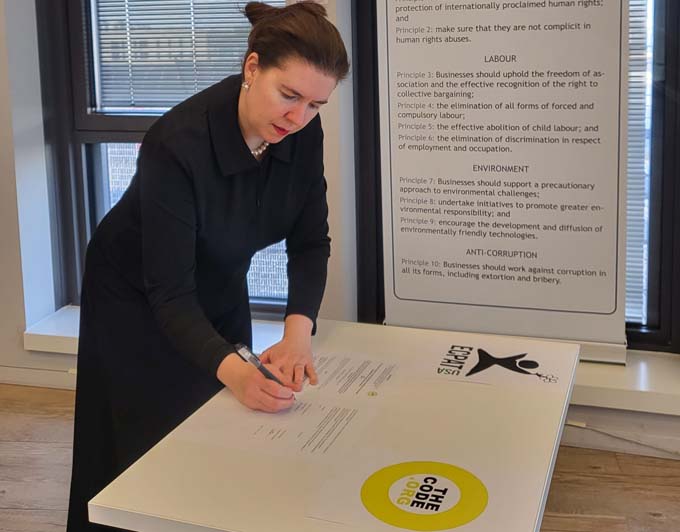CWT signs ECPAT Code of Conduct for the Protection of Children
Ahead of the World Day Against Human Trafficking, CWT, a B2B travel management platform, has signed the Code of Conduct for the Protection of Children from Sexual Exploitation in Travel and Tourism (called "The Code").

Signed by business travel services provider CWT (Carlson Wagonlit Travel), the ECPAT Code of Conduct (called "The Code") is a partnership initiative between the travel and tourism industry and ECPAT, a global nonprofit organization dedicated to protecting children from human trafficking, sexual exploitation and online abuse. By joining the Code, travel and tourism companies gain access to tools and resources that they can use in their daily work.
Tourists against human trafficking
CWT says it is an active and longtime supporter in the fight against human trafficking and is committed to The Code's efforts to raise awareness externally, engage employees internally, develop more effective policies, research and develop tools to combat human trafficking and sexual exploitation of children. "Every child in the world has the right to grow up free from the fear of exploitation and to live a dignified and safe life. It is vitally important that we all remain vigilant, and I hope companies like ours can help make that a reality," said Lauren Aste, CWT's Executive Vice President & Chief Legal Officer. "Signing ECPAT's Code demonstrates CWT's continued commitment and leadership to the safety of children everywhere."
ECPAT Code of Conduct with six criteria
The ECPAT organization is thrilled that CWT remains a loyal ambassador and partner of the Code, supporting its child protection programs in meaningful ways. "We thank CWT for its continued leadership in the anti-trafficking movement," said Yvonne Chen, director of private sector engagement at ECPAT-USA.
By signing the Code, CWT has committed to comply with the Code's six criteria. These include establishing policies and procedures, training employees, implementing contractual clauses, providing information to travelers, and collaborating with stakeholders on prevention, as well as reporting annually on all related activities.
Source: CWT









